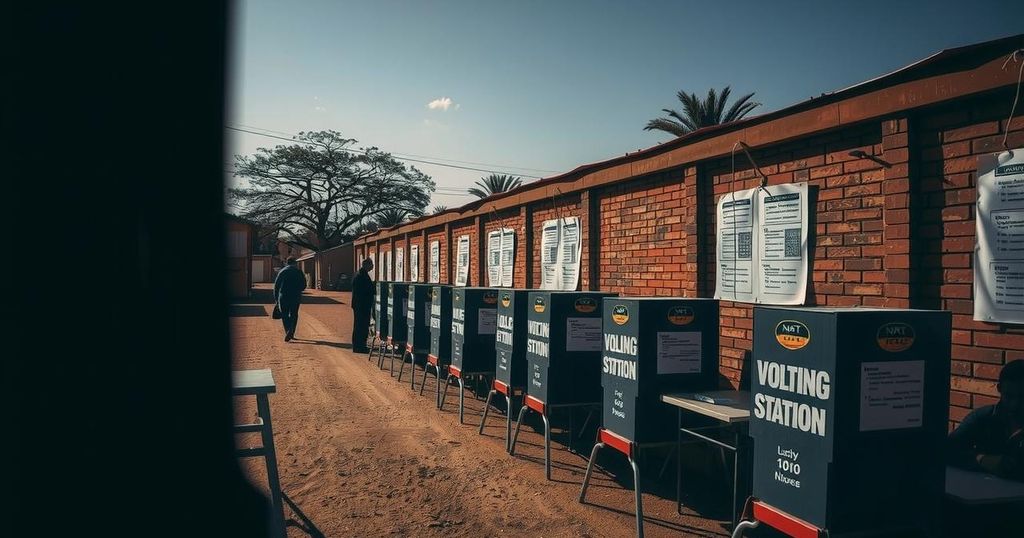Namibia Extends Voting Period Amid Complaints From Opposition Parties

Namibia has extended its presidential election voting period to Saturday due to ballot paper shortages, facing opposition claims of illegality. Long queues and logistical challenges have frustrated voters, casting doubt on the electoral process. Vice President Netumbo Nandi-Ndaitwah represents the ruling SWAPO and is a candidate in this pivotal election amidst discontent over economic disparities and youth unemployment in the country.
Namibia has decided to extend the voting period for its presidential election due to significant technical difficulties, including a shortage of ballot papers, which has led to long queues at polling stations. Originally scheduled to conclude on Wednesday, the voting will now continue until Saturday night, drawing criticism from the opposition Independent Patriots for Change party, which has labeled the extension as illegal and a potential precursor to electoral fraud. Many voters expressed frustrations over logistical challenges that have prevented them from casting their ballots.
Vice President Netumbo Nandi-Ndaitwah, representing the ruling South West Africa People’s Organization (SWAPO), is a candidate for the presidency and could become Namibia’s first female leader should she prevail in the elections. However, she faces considerable resistance from a younger demographic amid rising discontent due to economic hardships in a nation rich in minerals but afflicted by inequality.
The Electoral Commission of Namibia has indicated that logistical issues have hindered many from participating, leading to doubts among voters about whether they would receive the necessary ballot papers. Observers noted the ongoing situation resembles events in Mozambique, where allegations of vote rigging have incited violent protests following recent elections. Approximately 1.4 million Namibians are registered to vote in this election, marking a significant moment in the country’s political landscape, which has been largely stable since its independence in 1990. Despite the challenges faced this election season, Namibia remains regarded as one of Africa’s most stable democracies.
The situation in Namibia follows its historical context as a former German colony that fell under South African control post-World War I, during which the Black majority in Namibia was subjected to apartheid, limiting their political freedoms. The SWAPO party emerged as a dominant force in the fight for independence, gaining power after Namibia’s liberation in 1990. Despite the country’s rich mineral resources and designation as an upper-middle-income country by the World Bank, Namibia experiences stark economic disparity, which has fueled dissatisfaction among younger voters. This backdrop provides a critical understanding of Namibia’s ongoing electoral challenges and the implications of the current extended voting period.
In conclusion, Namibia’s extension of the presidential election voting period due to logistical issues has drawn significant criticism from the opposition, pointing to potential electoral fraud and raising concerns among voters. The unfolding situation highlights the frustration facing many Namibians amidst economic hardships, particularly among the youth. As the election continues, the implications of these issues could impact the future political landscape of Namibia, particularly with the potential election of its first female president.
Original Source: apnews.com






